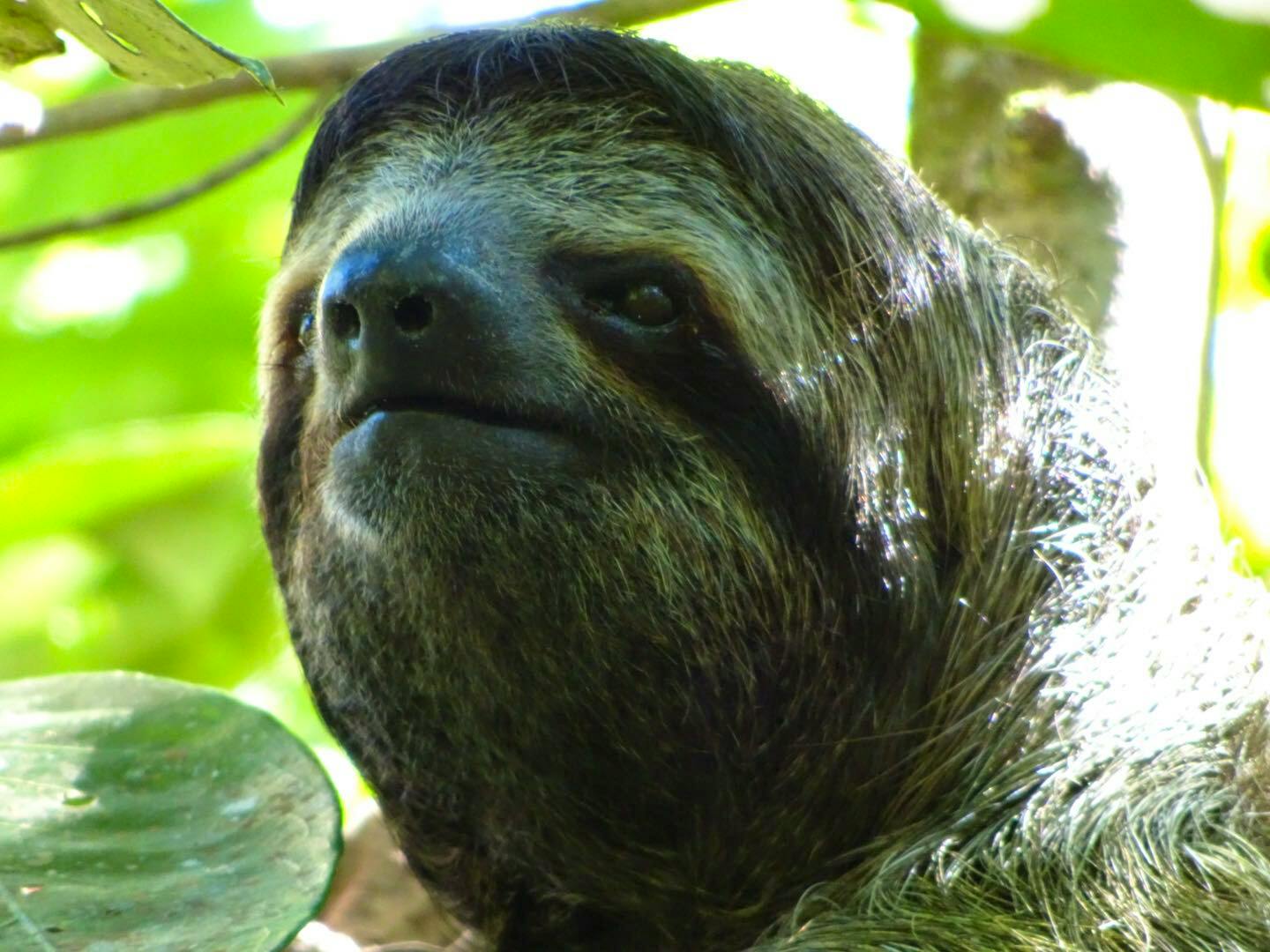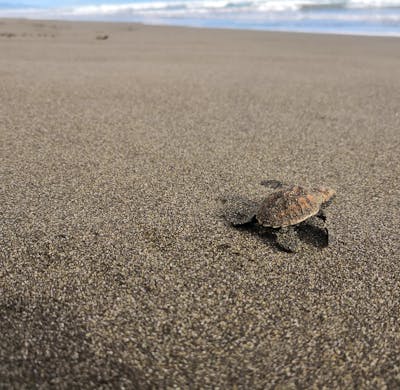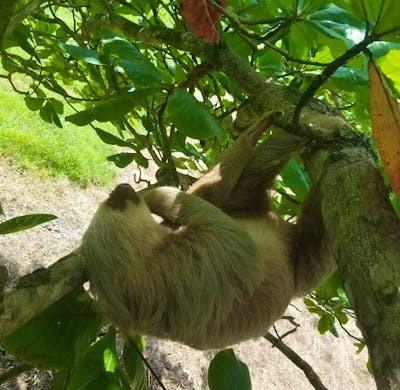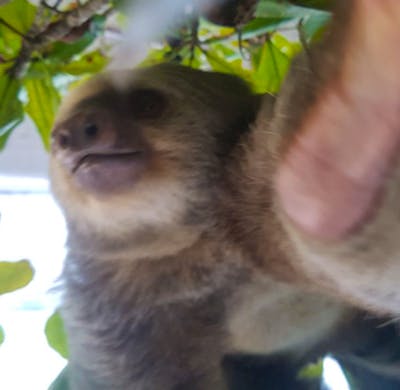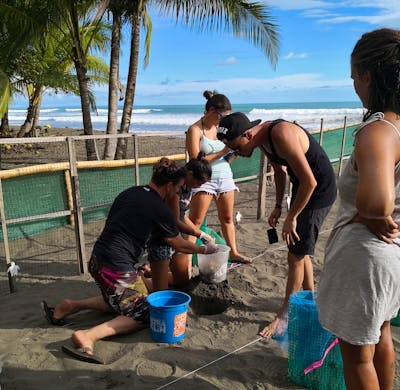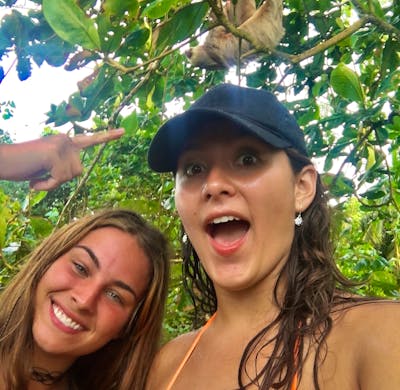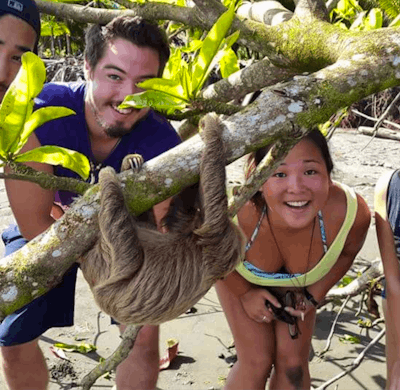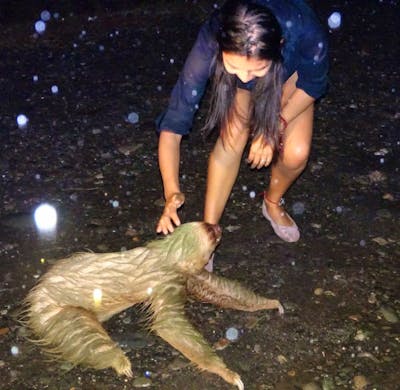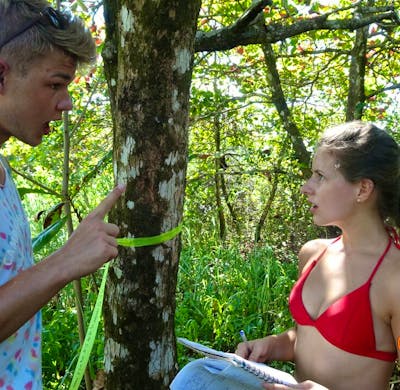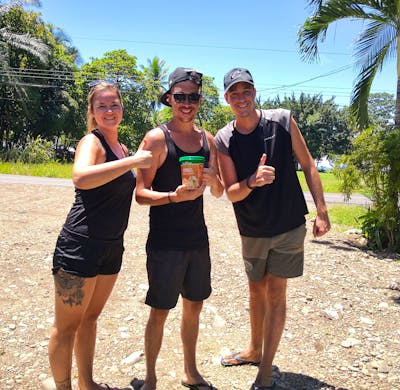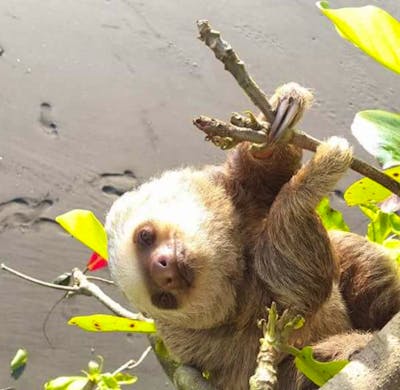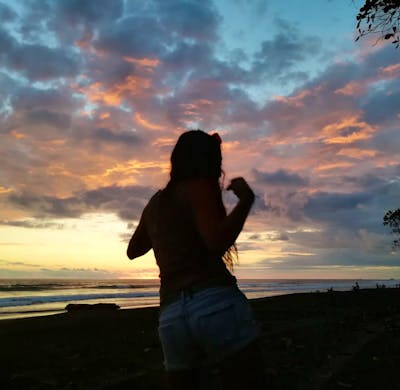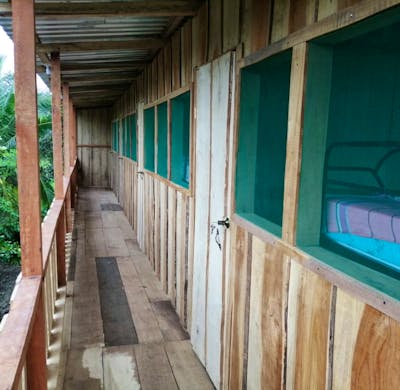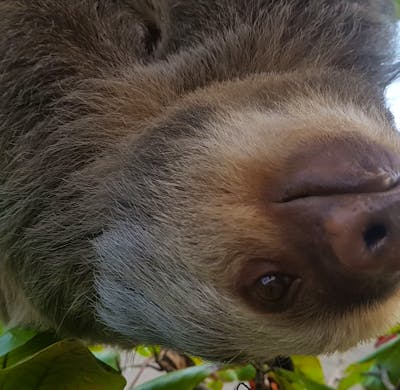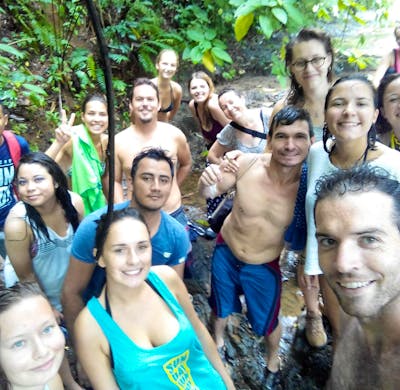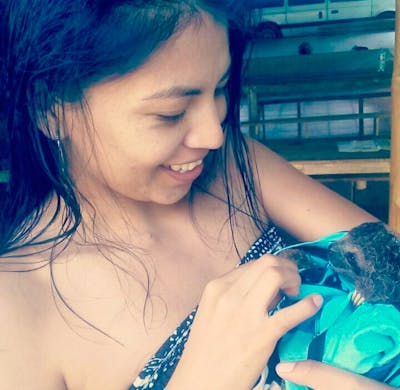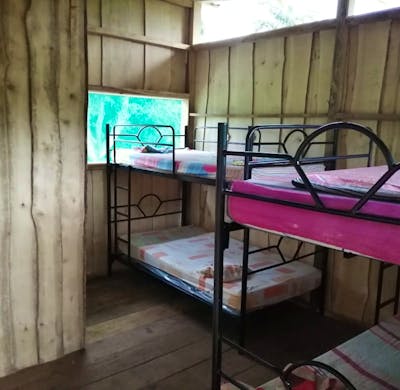desde 592€
Sloth Monitoring and Turtle Conservation
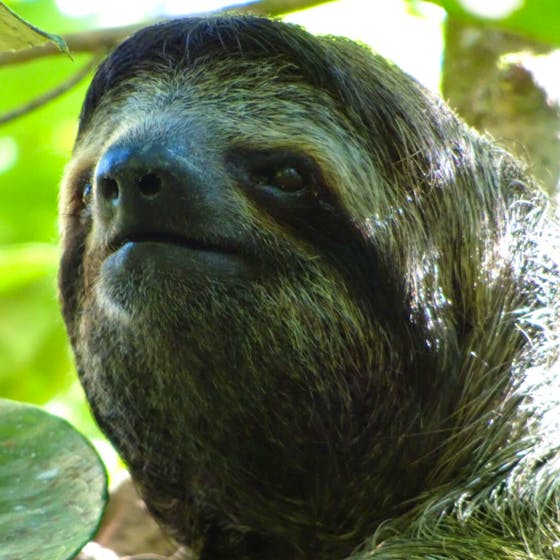
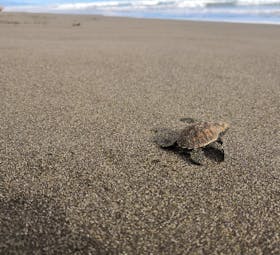
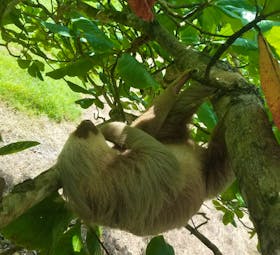
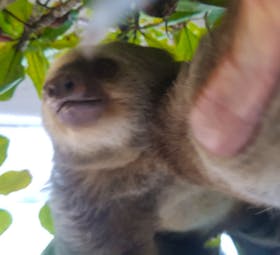
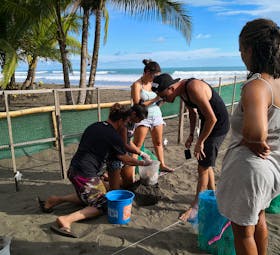
Completa tu reserva tan pronto como sea posible. Este proyecto se llena rápidamente y ya está reservado en ciertas fechas.
Puntos Relevantes
- Discover the wonders of one of the world's most biodiverse countries, where nature's bounty awaits at every turn!
- Embark on a captivating journey where sun-kissed beaches and vibrant wildlife seamlessly blend into a program of pure perfection
- Immerse yourself in the enchanting embrace of an exotic paradise, where the harmonious melodies of animals and ocean waves create a symphony for your senses
- Indulge in an authentic wild experience like no other, where culture, flavors, and breathtaking landscapes intertwine to create unforgettable memories
- Join us in safeguarding our precious environment- become an environmental champion and leave a lasting legacy
Especialmente adecuado para
Sobre el programa
Join us in Quepos to actively conserve sloths and turtles, monitoring these beautiful creatures. Make a significant impact on wildlife and nature!
The project
Begin your volunteer adventure and head to the rainforests of Costa Rica 30 km south to one of the most important national park in Costa Rica as Manuel Antonio National Park, where you can take part in the vital conservation of some of the country's most vulnerable wildlife. You will help ...
Día típico
The day starts at 5 am with morning monitoring. We go to different points previously marked where there is more activity of these animals. We monitor not only the two species of the sloth, but we also do it with the associated species. In addition to their diet, we collect data scientists and field ...
Actividades de tiempo libre
The town of Matapalo is located in a very special place. Because we have extensive beach of more than 10km, volunteers take on sport activities such surfing. If you do not know how to surf, on the neardest town Dominical 15 km from the camp you will find a school where you can learn to do it.
You'll
Requisitos
Servicios incluidos
¿Qué NO está incluido?
Detalles a la llegada
Arrival it's available any day except Sundays.
From San Jose take the bus in TRACOPA at 6:00. The bus is going to Uvita. Ask to the bus driver you need to get off the bus in Matapalo town. After you apply we provide to you more detailed your arrival.
Cuotas del programa
Conoce a tu anfitrión(a)
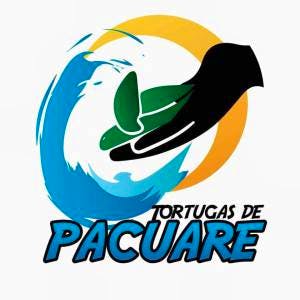
Tortugas de Pacuare
Agencia - fundada en 2012
Verificado por Volunteer World
Coordinado por
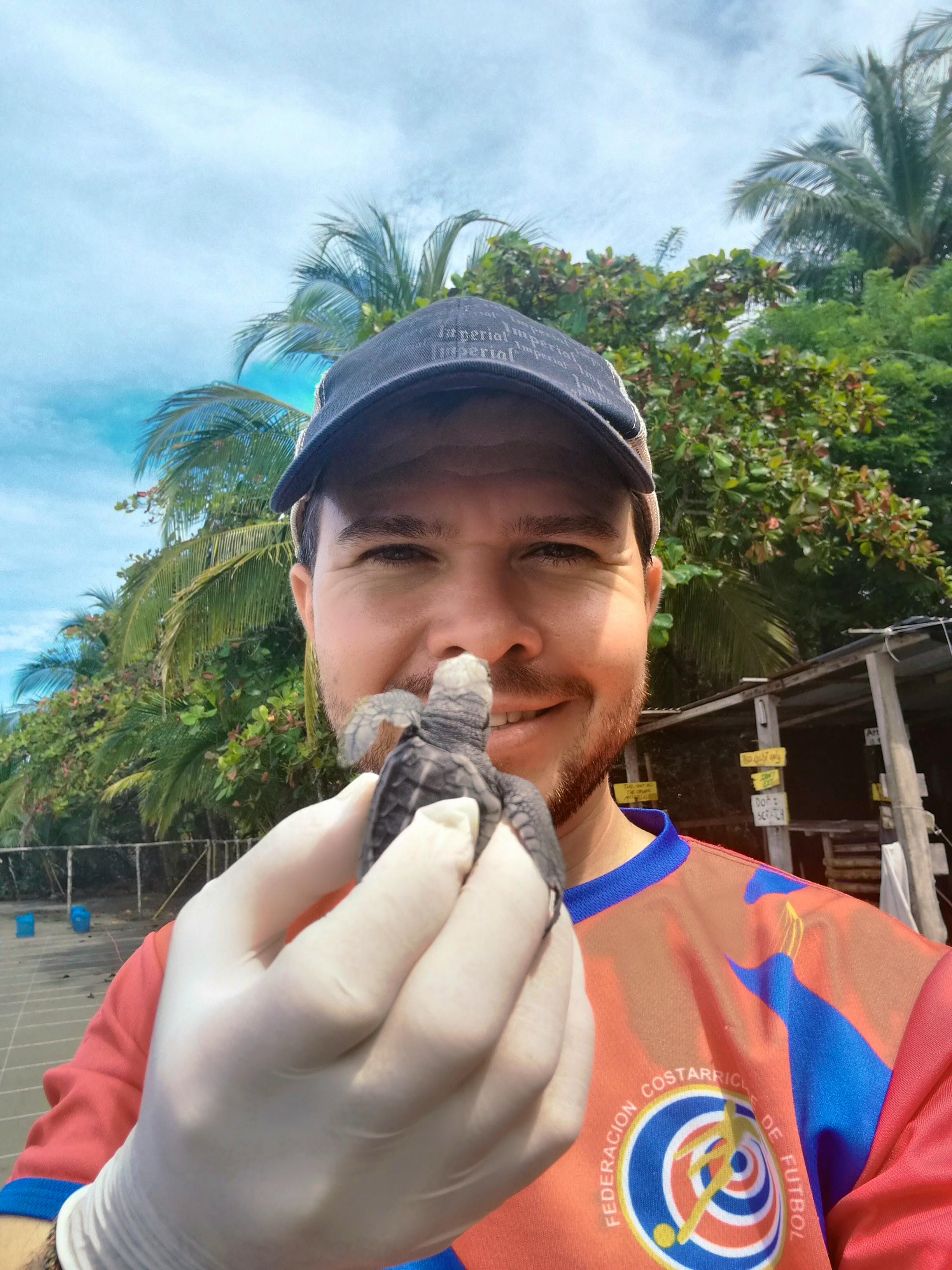
Luis
sobre la organización
220 reseñas ·  4.4
4.4
Ubicación

También te puede interesar
-
Yoga
Conservación de Tortugas Marinas
Santuario de Pereza
Latinoamérica
Perezosos Costa Rica
Mayores de 50 años
Familia
Voluntariado Viajes para estudiantes universitarios
Voluntariado familiar en Costa Rica
Los mejores programas de voluntariado
Adultos
Grupo
Proyectos en el extranjero
Viajes Solidarios
tu Pareja
Vida salvaje en Costa Rica
Animales Costa Rica
Tortugas marinas en Costa Rica
